6 Reasons Why Your Puppy Is Chewing On You (Nipping, Biting, Mouthing)
There comes a time in your puppy’s growth when you will notice they will start nipping, biting, and mouthing. So, why does my puppy chew on me?
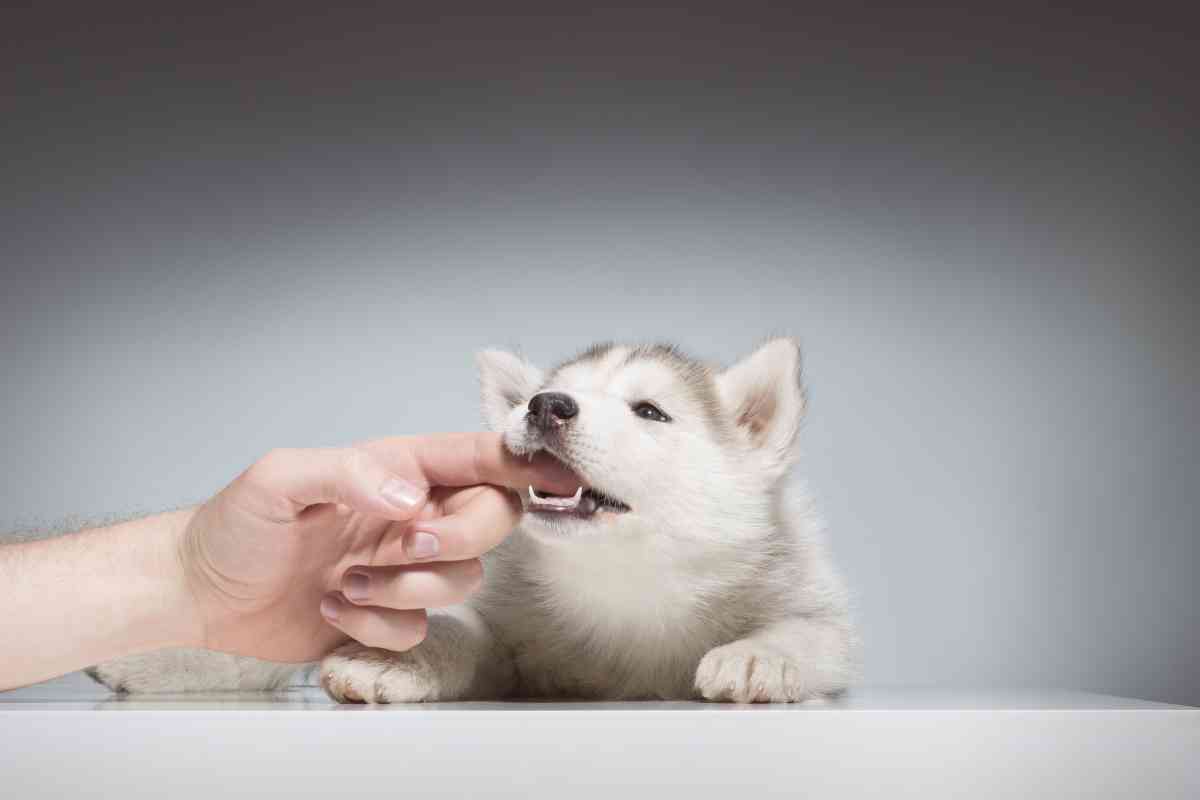
Why does my puppy bite me?
Your puppy may start nipping, chewing, biting and mouthing on you when they start teething. Another reason is how the puppy interacts with the environment (using their mouth). Other reasons include a sign showing you they want to play or get your attention.
We know that most puppies will undergo this stage at least once during their development, so we researched to help pet parents understand the reasons for this behavior.
We interviewed dog trainers and development experts to ensure we provided you with only the most authoritative information and advice. Let us get straight into sharing with you everything that we learned.
6 Reasons Why Your Puppy Is Chewing On you (Nipping, Biting, Mouthing)
While the habit of mouthing, nipping, and biting can be very frustrating to a pet parent, you must understand that it is part of your puppy growing up.
It is one of those stages of development that most puppies have to go through, no matter the breed.
One of the best ways to get through the stage is to understand why your pup is behaving the way they are and look for ways to stop it.
Here are some common reasons your puppy might exhibit mouthing, nipping, or biting behavior.
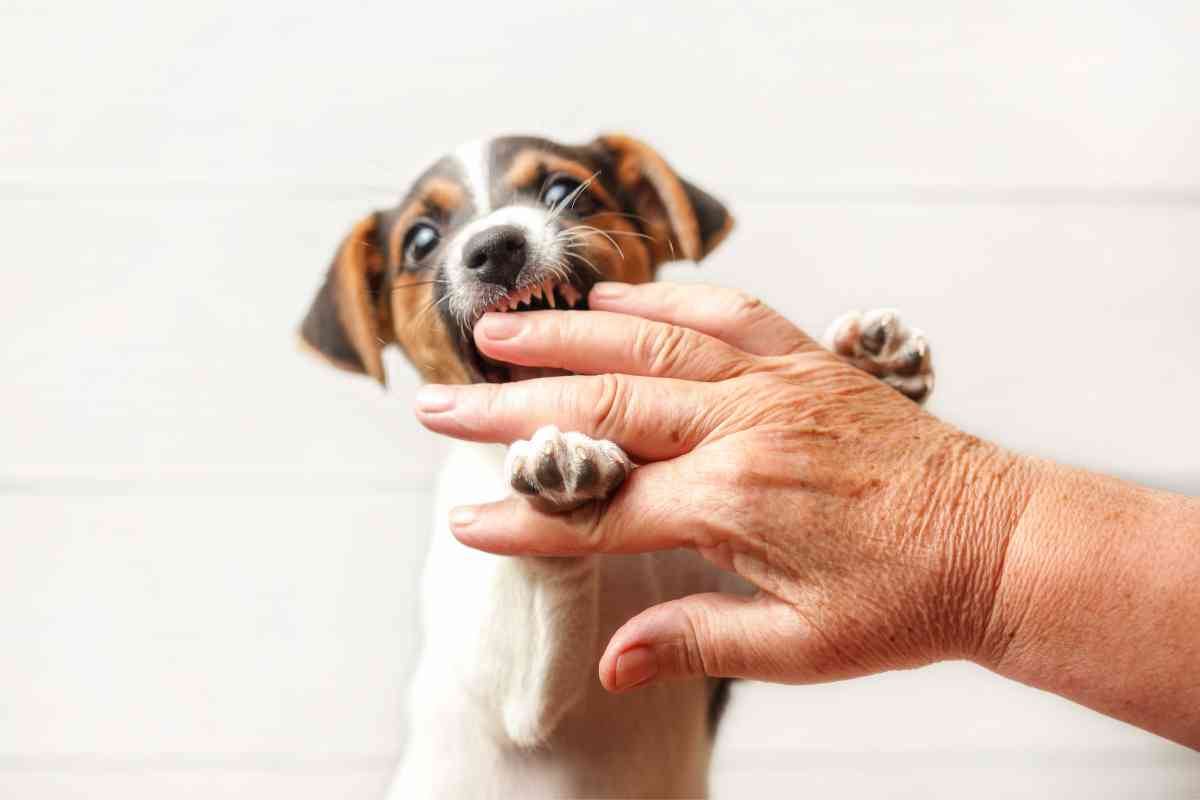
1. Your Puppy Might Want to Play
Mouthing, gnawing, and biting are all natural puppy and dog play behaviors. If you were lucky to see your pup at the breeder’s, you most likely observed them mouthing as an aspect of playing with offspring or their mother.
Although this type of play is standard for puppies when they play with each other, it is less enjoyable when your dog utilizes the same form of interaction with your palm. To discourage your puppy from developing the tendency to bite your hand, stop playing with them with your hands and instead utilize a toy.
Before they can develop the behavior of mouthing your hands during play, you may assist your puppy in creating the link that playing involves toys by positioning a toy between the two of you during playing sessions.
2. Your Puppy Might Be Teething
One of the main reasons why puppies tend to bite is because they are teething. Just as with human toddlers, teething can be very troublesome for puppies.
In most cases, puppies will start teething at around two to three months.
During the teething phase, a pet parent should buy their puppy a chew toy. This will help the puppy have something to nibble on whenever they feel like nipping, mouthing, or biting.
3. Your Puppy Might Be Tired
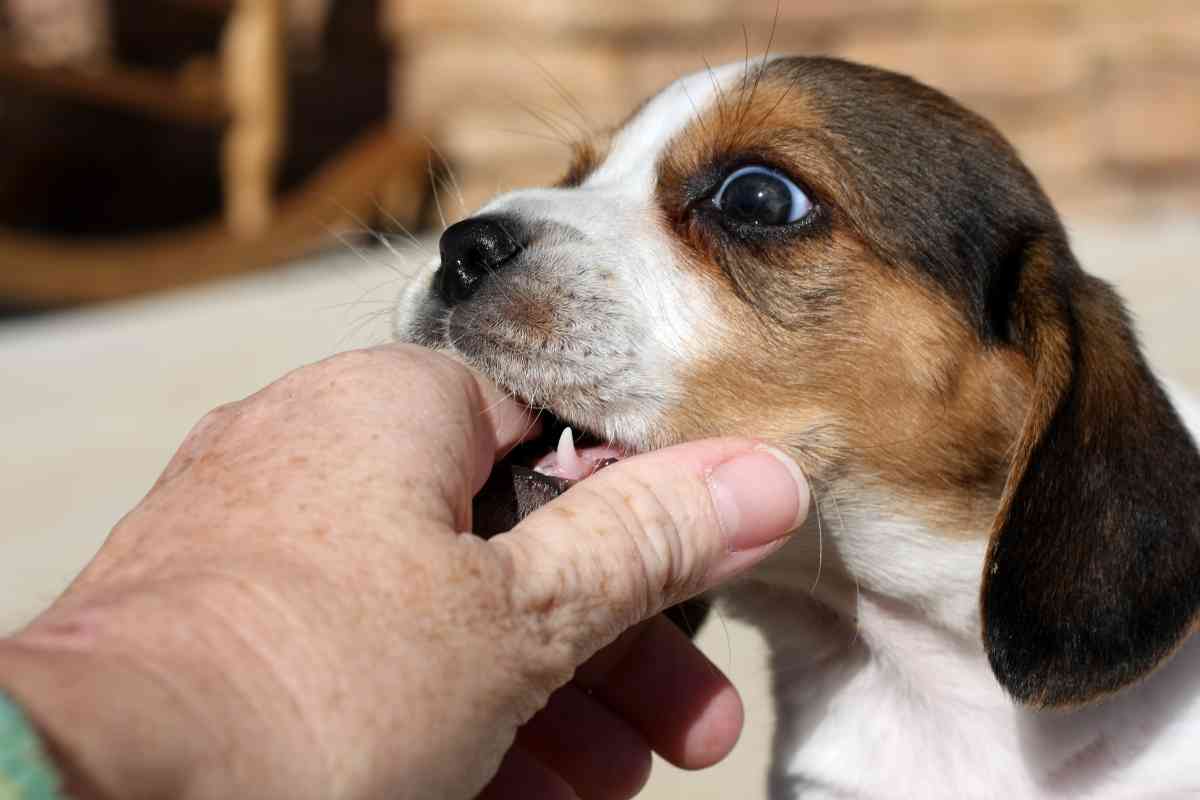
Another reason your puppy might exhibit overly nippy or biting behavior is that they are fatigued.
It is recommended that your young puppy gets at least 16 to 18 hours of sleep daily. Like a baby, a puppy can become cranky or fussy when tired; however, they may not be self-aware enough to realize that sleeping may make them feel better.
One of the best ways of helping your paper list is by scheduling rest and quiet periods throughout the day.
4. Your Puppy Might Be Over-Excited or Aroused
Since the puppy is very young, they are yet to learn how to regulate their emotions. Due to this, when they are overly aroused or excited, they may lose self-control and inhibition, which can lead to them biting, or mouthing.
You must help your puppy develop calming behavior while they are still young. One way of achieving this is by modeling the calm demeanor you want your puppy to exhibit.
For example, you should slow your movements, stay quiet, and speak in a slow and low tone.
If you train your puppy well enough, they will learn to read these cues, take a breath, and calm down whenever you employ them.
5. Your Puppy Might Be Frustrated or Angry
Puppies will often use their teeth to display anger and frustration.
While it can be easy for a pet parent to view a puppy’s biting behavior as being bratty or obnoxious, it is essential to note that your puppy’s feelings of frustration stem from confusion or lack of control about a situation.
If you notice your puppy is biting because of frustration, the best thing you can do is try and identify the source of their emotions and help them navigate it.
6. Your Inciting Behavior
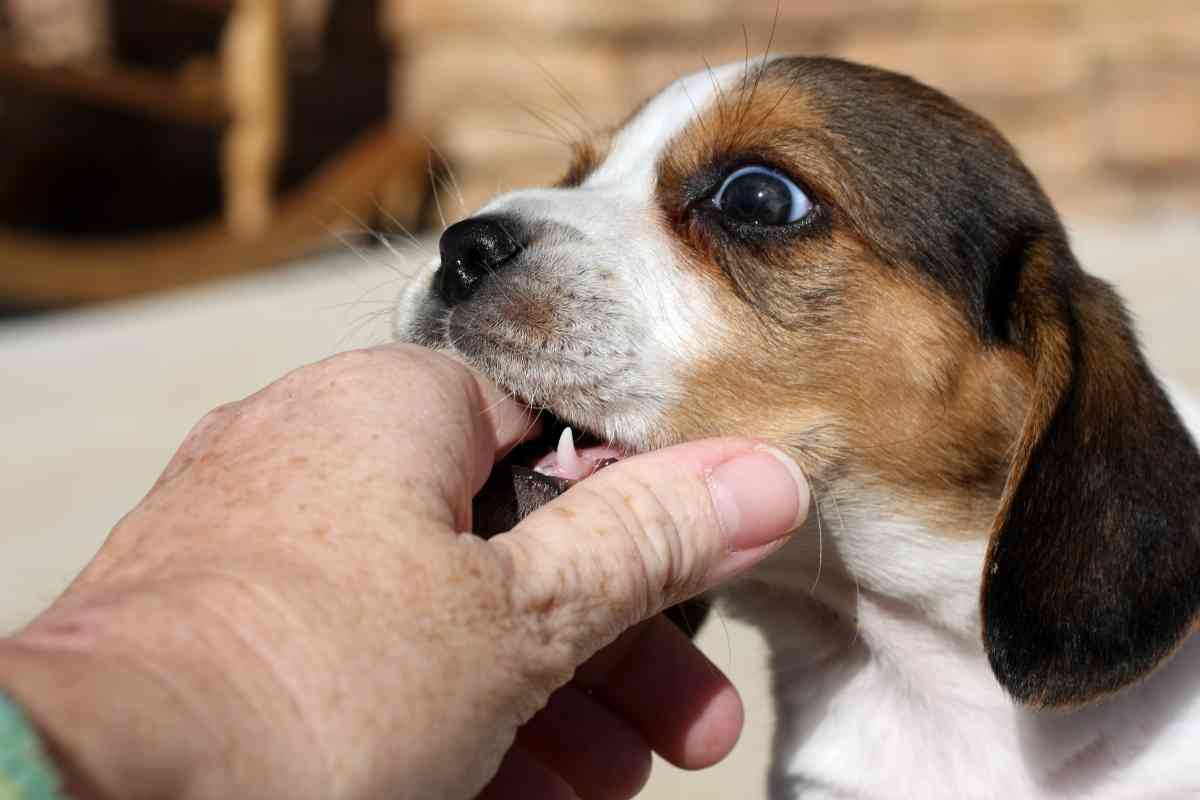
You might need a few new things for your puppy to bite. The most common of these are:
Prolonged periods of sitting on the floor while your puppy is active or excited. When you do this, your puppy will tend to climb over you and try to pull and gnaw at your hair, nose, clothes, and more.
Making high-pitched sounds and quick movements.
Your puppy will instinctively respond to high-pitched sounds and prompt actions by nipping at you or chasing you. It is the same reason why the toys designed for puppies have squeakers.
Stopping Your Puppy from Chewing On You
The first step is understanding that this is just a stage your puppy has to go through. Most puppies will go through this developmental stage from around 2 to 6 months. The behavior might sometimes be frustrating, but it is normal.
The second step is figuring out why your puppy is behaving in the manner they are doing. This is critical since it will help you understand the source of the problem, situation, or stimuli that cause them to nip or mouth at you and bite.
The third step is finding a way to solve the behavior by training them. While this might at times seem like a tedious and repetitive task, it will be all worth it if you stick to the end.
The most important thing to remember is to train your puppy continuously, and if they do not stop biting, retrain them again until they get things right.
Key Takeaways
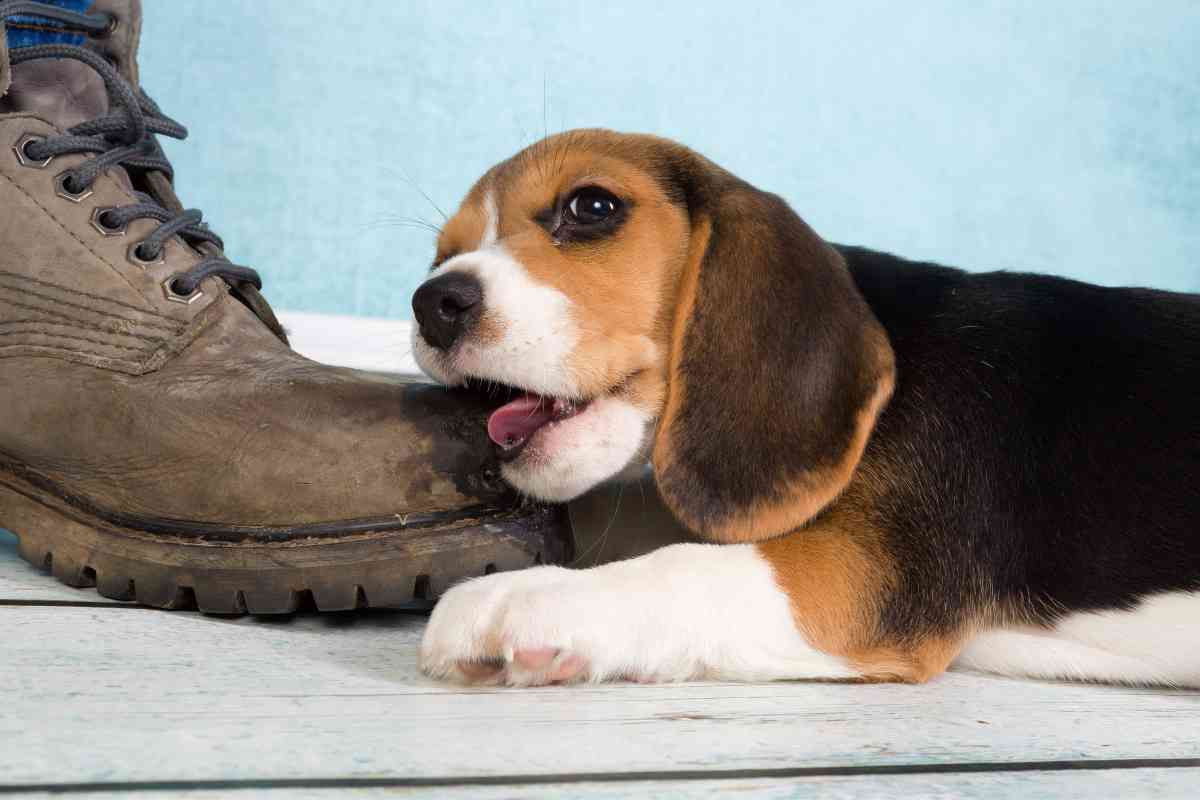
- Biting, mouthing, and nipping is a developmental stage your puppy will go through between 2 and 6 months; even then, it might not stop there.
- You should first seek to know what has brought about the behavior and then find solutions to train your puppy to stop it.
- Patience is paramount when getting rid of your puppy’s biting behavior. You may have to train and retrain them several times. If you are overwhelmed by the training process, you can seek the help of a professional dog trainer for your puppy.
- If the behavior does not stop, get a professional trainer to help your puppy stop biting.